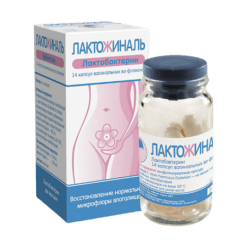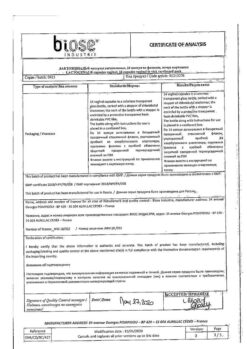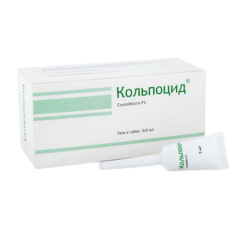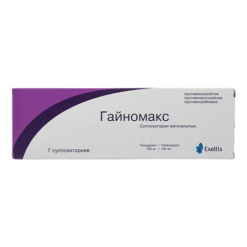No products in the cart.
Mersilon, tablets 21 pcs
€49.89 €41.58
EAN: 4601910000232
SKU: 34241
Categories: Contraceptive, Gynecology and Obstetrics, Hormonal, Medicine
Description
Contraception
Prevention of pregnancy;
Menstrual disorders.
Indications
Indications
Pregnancy prevention;
Menstrual irregularities.
Pharmacological effect
Pharmacological effect
Mercilon is an estrogen-progestogen, contraceptive.
Special instructions
Special instructions
If you have any of the following conditions or risk factors, you should carefully weigh the benefits and possible harms of taking Mercilon®. This issue should be discussed with the patient before starting the drug. In case of exacerbation of diseases, deterioration of the condition or the appearance of the first symptoms of the above-mentioned conditions or risk factors, the patient should immediately consult a doctor. The doctor should decide whether the drug should be discontinued.
Vascular diseases
Epidemiological studies have found that there may be an association between the use of COCs and an increased risk of arterial and venous thrombotic and thromboembolic diseases such as myocardial infarction, stroke, deep vein thrombosis and pulmonary embolism. These diseases are extremely rare.
The use of any COC is associated with an increased risk of venous thromboembolism (VTE), manifested as deep vein thrombosis and/or pulmonary embolism. The risk is higher in the first year of use than in women taking COCs for more than 1 year.
Some epidemiological studies show that women who took low-dose COCs containing third-generation progestins, including desogestrel, have an increased risk of VTE compared with those women who took low-dose COCs containing the progestin levonorgestrel.
Very rarely, thrombosis occurs in other blood vessels (for example, in the veins and arteries of the liver, mesentery, kidney, brain or retina). There is no consensus on whether this thrombosis is a consequence of the use of COCs.
An increase in the frequency and intensity of migraines while taking Mercilon® (which may be a sign of cerebrovascular disorders) may be grounds for immediate discontinuation of the drug. Tumors
The most important risk factor for developing cervical cancer is persistence of human papillomavirus (HPV infection). Epidemiological studies have shown an increased risk of cervical cancer in women who use long-term COCs, but there is still uncertainty about the extent to which these findings are influenced by confounding factors, such as increased cervical screening and differences in sexual behavior, including the use of barrier methods of contraception, or their relationship.
There is evidence that there is a small increase in the relative risk (1.24) of developing breast cancer in women using COCs. The increased risk gradually decreases over 10 years after discontinuation of COCs. Because breast cancer is quite rare in women under 40 years of age, the increase in the likelihood of developing breast cancer in women who are currently using COCs or have recently stopped using them is small relative to the initial likelihood of developing breast cancer. These studies do not provide data on the etiology of cancer. The increased risk of breast cancer may be explained either by the earlier diagnosis of breast cancer in women taking COCs, by the biological effects of COCs, or by a combination of both. There is a trend that women who have ever taken COCs have less clinically advanced breast cancer than women who have never taken COCs.
Very rarely, when using the drug Mercilon®, cases of the development of benign, and even more rarely, malignant liver tumors were observed.
In some cases, these tumors have led to life-threatening intra-abdominal bleeding. A physician should consider the possibility of a liver tumor in the differential diagnosis of diseases in a woman taking Mercilon® if symptoms include acute pain in the upper abdomen, liver enlargement, or signs of intra-abdominal bleeding.
Other diseases
If a woman or her family members are diagnosed with hypertriglyceridemia, then the risk of pancreatitis may increase when taking Mercilon®.
If a woman using the drug Mercilon® develops persistent clinically significant hypertension, the doctor should discontinue the drug Mercilon®
and prescribe treatment for hypertension. In cases where antihypertensive therapy can achieve normal blood pressure values, the doctor may consider it possible for the patient to resume taking the drug.
There are reports that jaundice and/or itching caused by cholestasis; gallstones, porphyria, systemic lupus erythematosus, hemolytic uremic syndrome, Sydenham’s chorea (minor chorea), herpes of pregnancy, hearing loss due to otosclerosis, (hereditary) angioedema develop or worsen both during pregnancy and when taking Mercilon®, but the evidence for this in relation to taking Mercilon® is inconclusive.
Acute or chronic liver dysfunction may serve as a basis for discontinuation of the drug Mercilon®
until liver function tests return to normal. Recurrence of cholestatic jaundice, previously observed during pregnancy or when using sex steroids, requires discontinuation of the drug Mercilon®.
Although Mercilon® may affect peripheral tissue tolerance to insulin and glucose, there is no evidence that patients with diabetes mellitus need to change their therapeutic regimen for taking low-dose COCs (containing less than 0.05 mg ethinyl estradiol). In any case, women with diabetes should be carefully monitored by a doctor while taking Mercilon®.
There is evidence that there is a connection between taking COCs and Crohn’s disease and ulcerative colitis.
Sometimes, when taking Mercilon®, pigmentation of the facial skin (chloasma) may occur, especially if it occurred earlier during pregnancy. Women with a predisposition to chloasma should avoid direct sunlight and ultraviolet radiation from other sources while taking Mercilon®.
Medical examinations/consultations
Before starting or resuming use of Mercilon®
The woman should have a detailed medical history (including family history) and a thorough examination. Blood pressure should be measured and if clinically significant signs are detected, a physical examination should be performed, guided by contraindications and precautions. The woman should be instructed to carefully read these instructions for use and adhere to the recommendations. The frequency and list of examinations should be based on generally accepted practice and selected individually for each woman (but at least once every 6 months).
The woman should be advised that oral contraceptives do not protect against HIV (AIDS) and other sexually transmitted infections.
Reduced efficiency
Efficacy of Mercilon®
may decrease in case of skipping a dose, gastrointestinal disorders, or when taking certain medications concomitantly (see section “Interaction with other drugs”).
Irregular bleeding
When taking Mercilon®, especially in the first months of use, irregular spotting or heavy bleeding may occur. Therefore, assessment of irregular bleeding should be carried out only after the end of the adaptation period, lasting three months.
If irregular bleeding persists or appears after previous regular cycles, possible non-hormonal causes of cycle disruption should be taken into account and appropriate studies should be carried out to exclude malignant neoplasms or pregnancy. These measures may include diagnostic curettage.
Some women may not experience menstrual bleeding during the interval between taking the drug. If Mercilon® is taken as recommended above, the likelihood that the woman is pregnant is low. Otherwise, or if there is no bleeding two times in a row, you should exclude the possibility of pregnancy and consult a doctor.
Laboratory research
Oral contraceptives may affect the results of some laboratory tests, including biochemical indicators of liver, thyroid, adrenal and kidney function, the content of transport proteins in plasma, for example, corticosteroid binding globulin and lipid/lipoprotein fractions, parameters of carbohydrate metabolism, parameters of coagulation and fibrinolysis. Usually these changes are within normal laboratory values.
Lactose
Each tablet of Mercilon®
contains less than 80 mg of lactose. Women with rare hereditary disorders, such as lactose intolerance, lactase deficiency, glucose-galactose malabsorption, who follow a lactose-free diet, should take into account the lactose content in Mercilon®.
Impact on the ability to drive a car and other mechanisms
The effect of Mercilon® on the ability to drive a car and operate machinery has not been noted.
Active ingredient
Active ingredient
Desogestrel, Ethinylestradiol
Composition
Composition
Active ingredients:
Desogestrel 0.150 mg;
Ethinyl estradiol 0.020 mg.
Excipients:
Potato starch 8.0 mg;
Povidone 2.4 mg;
Stearic acid 0.8 mg;
Colloidal silicon dioxide 0.8 mg;
Alpha tocopherol 0.08 mg;
Lactose monohydrate up to 80 mg.
Contraindications
Contraindications
Tumors of the uterus and breast.
Uterine bleeding.
Thrombosis of veins and arteries.
Severe dysfunction of the liver and kidneys.
Severe forms of diabetes.
Severe forms of arterial hypertension.
Side Effects
Side Effects
Thrombosis or thromboembolism (including myocardial infarction, stroke, deep vein thrombosis, pulmonary embolism), thromboembolism of the hepatic, mesenteric, renal arteries and veins, retinal arteries.
Increased blood pressure.
Hormone-dependent tumors (liver tumors, breast cancer).
Chloasma (especially if there is a history of chloasma during pregnancy).
Acyclic bleeding is more common in the first months of use.
Allergic reactions.
Interaction
Interaction
Interactions between oral contraceptives and other drugs may lead to acyclic bleeding and/or decreased contraceptive effectiveness. The following interactions are described in the literature.
Hepatic metabolism: Interactions may occur with drugs that induce microsomal enzymes, which can lead to increased clearance of sex hormones (eg, phenytoin, barbiturates, primidone, carbamazepine, rifampicin, rifabutin; and possibly also oxcarbazepine, topiramate, felbamate, ritonavir, griseofulvin and preparations containing St. John’s wort). Maximum induction of enzymes is not observed in the first 2-3 weeks of taking Mercilon®, but may occur at the end of 4 weeks after the usual break in taking the drug.
There have also been reports of disruption of the contraceptive effect when taking Mercilon® with antibiotics such as ampicillin and tetracyclines. The mechanism of this effect is not clear.
Women who take any of the above drugs should temporarily use an additional barrier method of contraception or choose another method of contraception.
When using microsomal enzyme inducers simultaneously, a barrier method of contraception should be used throughout the entire course of treatment and for 28 days after stopping treatment. In case of long-term treatment with the use of microsomal enzyme inducers, it is necessary to use another method of contraception.
Women using antibiotics (with the exception of rifampicin and griseofulvin, which have the properties of microsomal enzyme inducers) should use a barrier method of contraception throughout the course of treatment and for 7 days after the end of therapy. If the period during which a barrier method of contraception is used continues after the end of the tablets in the COC package, then the next package of the drug must be started without the usual dosing interval.
Oral contraceptives may affect the metabolism of other drugs.
Accordingly, their concentrations in plasma and tissues can be changed: increased (for example, cyclosporine) or decreased (lamotrigine).
When treating with other medications, to determine possible interactions, you must read the instructions for medical use of these medications.
Overdose
Overdose
No serious complications were observed with an overdose of Mercilon®.
Symptoms that may occur in case of overdose: nausea, vomiting, and in young girls, bleeding from the vagina.
There are no antidotes and further treatment should be symptomatic.
Storage conditions
Storage conditions
Store at temperatures from 2 to 30 °C in a dry place, protected from light.
Shelf life
Shelf life
3 years.
Manufacturer
Manufacturer
N.V.Organon, Netherlands
Additional information
| Shelf life | 3 years. |
|---|---|
| Conditions of storage | Store at 2 to 30 ° C in a dry place protected from light. |
| Manufacturer | N.W. Organon, The Netherlands |
| Medication form | pills |
| Brand | N.W. Organon |
Related products
Gynecology and Obstetrics
Buy Mersilon, tablets 21 pcs with delivery to USA, UK, Europe and over 120 other countries.












